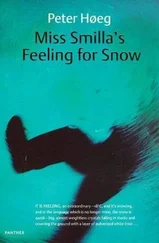Marina didn’t take me seriously. I fell in love. While I crabbed after her through the toe-wrenching Crimean pebble beach, trying to impress her with my intelligence and wit, Tolyan was stuck with the plain Lenka. When he found out, though, that her father was a high-ranking Party apparatchik in Voronezh, with money and connections, she at once became a lot less plain. I realize now that Lenka was the type of girl whose beauty would have been awakened by a truly great love, which Tolyan could neither give nor inspire.
At the close of two weeks we said good-bye to the girls and spent the following months clogging the phone lines with long-distance calls. As soon as my leg was strong enough to bear the weight of a bride, Tolyan and I decided to visit Marina and Lenka in Ulyanovsk, their and Lenin’s hometown. I arrived in my most fashionable outfit: a blue plaid blazer, plaid shirt, and navy pants I still had from my European days in Riga. I told myself that as soon as I saw Marina again I’d know. And I did. She met me at the airport in a scarlet dress with white polka dots and giant horn-rimmed glasses, her chestnut hair in a thick schoolgirl braid. The now legendary welcome dinner awaited me at her apartment: meatballs that had congealed overnight into one pot-sized meatball mass and had to be cut with a steak knife.
We married the next month. Tolyan married Lenka because if one must have a wife, it might as well be an apparatchik’s daughter, he had reasoned. Perhaps I should have foreseen trouble. But the little sense I possessed at twenty-eight was hopelessly drunk on Marina. I wanted Tolyan to have what I had—the wedding, the young wife. We, after all, had known our brides for the same amount of time: two weeks plus the phone calls. Our chances seemed equal.
The weddings took place on the same day. Back then it was a simple affair: you signed the book at the civil registry office (I remember a big oil portrait of Karl Marx on a whitewashed wall behind the officiant), took pictures next to the war memorials in town, and partied at a restaurant until morning. It was the first time my parents met Marina and I met Marina’s mother, Olga, who was the chief doctor of a polyclinika in Syktyvkar, a city in the north. I remember being a little bit offended that she’d brought an extra pair of wedding rings, in case we’d forgotten to buy ours. She didn’t trust me yet. She’d also brought a family album for me to catch up on my bride’s family tree. They came from the Terek Cossacks, with a wild-card Mongolian babushka somewhere down the line. Marina didn’t know her father; Olga had left him because of his gambling addiction when Marina wasn’t yet two.
I still remember a particular photograph in that album. Marina’s grandmother, a chubby, smiling woman in a floral dress, points out something in a book (her finger raised in a teasing, teacherly manner) to Marina’s step-grandfather—a much skinnier, tired-looking man with a curly cowlick and linen pants pulled up high above his waist. And he looks at her with the most perfect mixture of attention, humorous suspicion, and love. Marina said she’d seen the ghost of this grandfather after his death—her grandmother’s second husband; the first one had been accused of being a Japanese spy during Stalin’s repressions and had sat in one of the camps close to Magadan.
What touched me most in that picture was Marina’s grandmother’s ear. It was the exact shape as Marina’s: long and narrow, the lobe the same width as the top. It was then that I felt Marina and her whole lineage of feisty women, including the Mongolian babushka, were now my family.
After our honeymoons—mine in Bulgaria and Tolyan’s back in Riga—we took our brides northeast. At first, Marina and Lenka complained about how far Magadan was from the continent, from their parents, and marveled at how close it was to Alaska—a fabled place that was once Russia and now inaccessible America. Soon they acclimated to the weather and began to love, like us, the quiet white days after the snowstorms. They noticed that despite Magadan’s extreme remoteness, they were surrounded by intelligent, professional people, who were always willing to help. Survival in the harsh north, especially back in the Soviet times, was impossible without friends and reliable acquaintances.
Marina found work as a piano accompanist in the wind department at the local arts college. On the weekends, we all went mushroom and lingonberry picking, grilled shashliks, and sang songs, accompanied badly on the guitar by Tolyan. He’d learned a few chords back in his days of courting Anya. With the first big snowfall I was back on the slopes and teaching Marina, who had never skied before.
My newlywed life was not without surprises and discoveries. That happens even if one makes a proper acquaintance first and then signs the marriage registration, but we were good candidates for getting used to each other. Tolyan and Lenka weren’t so lucky. It was clear from the start that they were catastrophically incompatible. At first, they tolerated each other because of the novelty of marriage. Later, Lenka tolerated Tolyan because she wanted children. He was still a flirt and a heavy drinker. When he wasn’t playing tennis with me, he lay on the couch and watched soccer. Sometimes Lenka called me to whine about Tolyan’s behavior, as though I’d sold her a defective product. What could I do? I had lost my power over him; he was now her responsibility.
Three years later, Marina and Lenka gave birth, within weeks of each other. Perestroika was taking root in the country and at home. We named our daughter Sophia, after my grandmother, Sonya for short. Tolyan’s son sustained an injury at birth and, the doctors said, would be severely disabled for the rest of his life.
Tolyan and Lenka were devastated, and so were Marina and I. We couldn’t shuttle between Sokol and Magadan as often with the newborns. And when we did see each other or talk on the phone, Marina and I couldn’t fully express our joy about our daughter, nor did we know how to sympathize properly with Tolyan and Lenka. How could we ever come up with the right proportion of understanding, concern, and encouragement? How could we ever truly relate?
When their son turned one, Tolyan and Lenka moved to Voronezh. I didn’t try to talk Tolyan out of it, though I knew he would be unhappy there. It would have been me against Lenka and her family. And what could I offer him in practical terms? Now he would be unhappy anywhere. The few times I’ve thought back to our separation, I am always struck by how undramatic it was. I remember picking up Tolyan’s skis at his place for safekeeping and how he had held on to them a moment too long. In the background, Lenka was screaming on the phone, and his son was wailing. I couldn’t wait to get out of there. My real life had already begun and was waiting for me back at my apartment, whereas Tolyan’s was slipping out of his hands.
In Voronezh, Lenka’s father had arranged for a two-bedroom apartment, which by the standards of the day was shockingly spacious for a family of three. He helped Tolyan get accepted into the Party and found him a position at the local aviation agency. Tolyan, I could tell from our still-frequent phone conversations, was miserable. All of his life he’d lived in pursuit of his own pleasure. Now, the care of a sick child—a child, he said, he wasn’t crazy about having to begin with—was like a second, more stressful and time-consuming job. It soon became apparent just how spoiled and selfish Lenka was. Her papa could solve only so many of her problems.
Tolyan’s unraveling progressed quickly. He drank earlier and earlier in the day, slept at his desk at work. He and Lenka started having affairs. Eventually, their new paramours moved into the separate bedrooms in their apartment, and the kitchen became a veritable battlefield. When the Union collapsed, Tolyan’s father-in-law lost his Party power. Without his patronage, Tolyan and Lenka were both fired from their jobs. They exchanged their apartment for two smaller ones and finally divorced. Tolyan was picked up by a good woman, who, for some reason, decided to save him. (Oh, Russian women! Many of them still live by the principle “Doesn’t matter what he is, as long as he’s mine.”) Lenka took on the custody of their son.
Читать дальше












